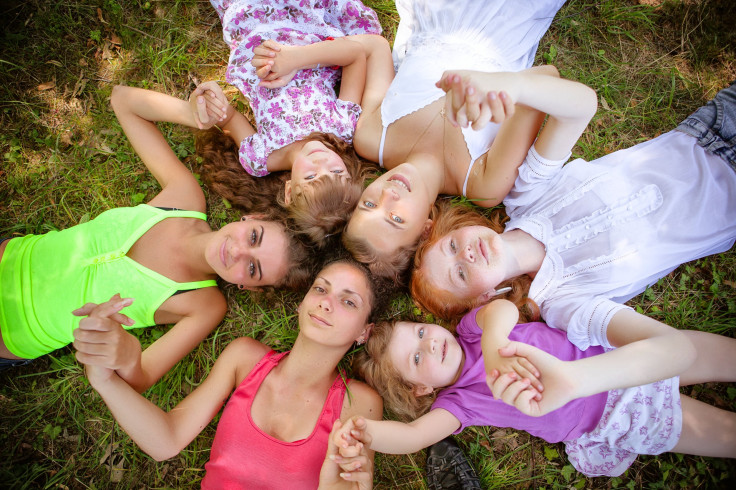UNESCO Highlights Why Puberty Education Is Important For Girls: 2 Out Of 3 Girls Don’t Know What’s Happening During Their First Period

Imagine you’re a 10-year-old girl living in a rural community. Your days are spent going to school, playing with friends, and, in some cases, working to help support your family. All of a sudden, you get these sharp pains in your abdomen, your back also begins to hurt, and then without warning, blood flows down from in between your legs. For many girls in developed nations, they are well aware of the change that their bodies are going through. However, if you are like millions of girls across the world, the first menstruation can be a traumatizing and confusing experience.
In an effort to combat this lack of knowledge, the United Nations Educational, Scientific and Cultural Organization (UNESCO) partnered with Procter and Gamble’s brand, Always, to launch a global effort to provide education for young girls. The initiative is called the UNESCO’s Good Policy & Practice in Puberty Education & Menstrual Hygiene Management.
There are approximately 1.2 billion adolescent girls worldwide that need education to improve their knowledge on puberty and menstruation. And as much as two out of three girls don’t know what is happening to them during their first period, which can lead to a number of physical and emotional issues. In developing countries, the problems are exacerbated by a lack of resources and many social taboos that cause girls to be more likely to drop out of school when they reach puberty.
In many parts of the world, it is considered a bad omen to have a daughter because of dowry issues that are thought to eventually become a financial burden to their parents. Because they are seen as a burden, many factors associated with being a women are also included in the mix of shameful topics. Adolescents, both boys and girls in many parts of the world are exposed to the Internet and too many other social outlets, but a lot the time the information they receive is not accurate.
“There is a complete disconnect with the home and the Internet,” said Dr. Venkatraman Chandra-Mouli from the World Health Organization. “Children are not getting information from their parents, and then with a click of a button, they can Google and find pornographic images."
A lack in sensitivity when it comes to addressing the issue is also a major concern. In 2014, girls are still teased by their male classmates and other male peers in their everyday lives, all because of a naturally occurring bodily function. And this is more than just “kids being kids.” When women don’t feel comfortable in their own bodies, a slew of emotional issues can be expected to follow, said Joyce McFadden, psychoanalyst and author of Your Daughter’s Bedroom: Insights for Raising Confident Women. While this might not be as apparent in America as other countries, the taboo of menstruation is still an issue.
“I think there is still a cultural taboo, driven by sexism whether it’s uncurious or not," said McFadden to Medical Daily, “The cultural taboo keeps women from being brave enough to talk about these things with their daughters. We are handing down our shame in talk from one generation to another.”
In some countries, women are even forced to live outside of the home while they are going through their menstrual cycle. This oftentime has to do with strict religious norms. In Niger, many women are often secluded from day-to-day activities. In 2011, Saumya Dave, a student, and Noreen Connolly, a teacher, visited parts of north and west Africa, and what they found out regarding menstrual traditions was shocking.
After interviewing a 55-year-old widow, Fatih Yoye, from a small village in Niger, she realized that women were basically outcast when they were on their period, “She said [Fatih Yoye] that she used cloth rags as protection. They were washed daily and hung inside her hut, away from the other clothes that were allowed to dry outside, to minimize embarrassment.” This happens too often in rural countries. In rural Nepal, women are forced to isolate themselves and live in huts during their periods. The social norms dictate that women need to be removed from a functioning society because they might contaminate the surroundings or are seen as unclean or unholy.
However, combatting social norms is one thing, but much of this stigma stems from religious roots that date thousands of years back with a history of misogyny — leading to period-shaming. Dr. Marni Sommer, assistant professor at Columbia University, believes that understanding cultures and being sensitive to different religions is a way to be able to promote the education of religious leaders and teachers about puberty. However, the very religious institutions that they are looking for help with their initiatives are the same religions and leaders that have also used religion as a means to foster shame. So this might seem like a paradoxical situation.
So what’s the big deal here? Why is being aware of menstruation so important? "It’s a matter of respect," McFadden said. “Women need a space to talk about the realities that they are going through. There are even millions of girls who don’t even know the correct names for their body parts.”
She also pointed out: How can women ever expect to talk about a trauma or other negative experiences when their caregivers won’t even talk to them about normal bodily functions?
“We teach our girls the alphabet because we know that they’re going to be able to read one day,” McFadden said, “But we don’t teach them about their bodies when they’re going to be living with them for the rest of their lives.”
Published by Medicaldaily.com



























